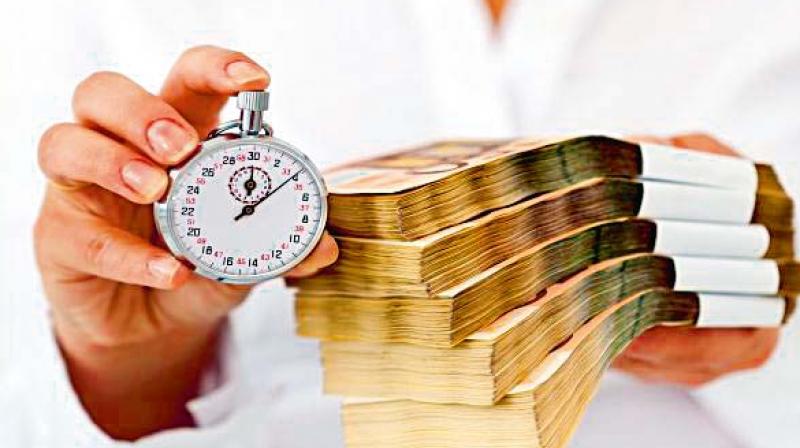How to smartly & quickly get out of debt
If you want to get out of debt, it requires financial discipline and proper planning.

Loans help you achieve your life goals. Whether it’s buying a house, completing higher education, or swiping your credit card for an electronics purchase, loans can be your friend in your moment of need. However, it is your moral and legal obligation to repay your debts. From the point of view of financial health, it’s also important to get out of debt soon so that you can enjoy your income without any worries. Here are some steps you can take to clear your debts efficiently and quickly.
TAKE STOCK OF LOANS
Let’s start by taking count of all the various loans you may have. Loans could be in various forms. You may have taken a home, car, or personal loan from your bank or NBFC. You may have also taken an electronic or furniture on EMIs through an e-commerce website or store. Then, there may be a balance on your credit cards. Lastly, there may be an amount you borrowed from a friend or family member. Make sure you have all relevant information on your loans such as pending balances, tenure left, and rate of interest.
PRIORITISE THE URGENT LOANS
Some loans need to be settled more urgently than others. Therefore, you must now prioritise which loans you must settle first and which ones you can afford to keep longer. For example, credit card debt is one of the most expensive loans you can have, with annualised interest rates exceeding 30 to 40 per cent. Therefore, you must clear such debts on priority since they are expensive and do not provide any tax benefits. On the other hand, a home loan’s interest rate may be easier on your wallet and repaying it also provides you tax benefits under Section 80C and 24B for principal and interest payments. Come up with a plan for how you will prioritise and repay your loans.
IMPROVE SAVINGS HABITS
Being able to quickly get out of debt not only means that you stick to your repayment plan but also that you be smart about your savings. The more money you save, the more you would be able to set aside to divert to your loan account. One reason why people get into crippling debt is that they continue to spend beyond their means. If you have such a habit, you should get it under control for the sake of your financial health.
MAKE PRE-PAYMENTS
Making principal pre-payments are a great way to get out of debt fast, especially when you are in the early stages of your loan tenure. An extra payment worth even one EMI can have a tremendous impact on your repayment. Let’s understand this with an example. You took a home loan for Rs 30 lakh at nine per cent for 20 years. Your EMI is Rs 26,034. The total interest you will pay over 20 years is Rs 32.48 lakh. Let’s say you pre-paid Rs 1 lakh above your 13th EMI, your total interest would reduce to Rs 28.81 lakh, saving you Rs 3.67 lakh in the long run.
INCREASE EMIs
Alongside making pre-payments, you could also ask your lender to adjust the size of your EMIs. This option works best if you don’t want to make a lump-sum pre-payment on your loan. As your income increases over the years, your disposable income and repayment capacity may have increased proportionately. You can use this opportunity to ask your lender to increase your EMI, which would help you clear off your loan quicker.
SHIFT TO CHEAPER LOAN
Have you considered that the interest rate that you are paying on your loan may be higher than the prevalent market rates? If you are paying a rate significantly higher than what the market charges today, it would be wise to transfer your loan. For example, you may have a home loan with a bank where you are paying a fixed rate of interest. Therefore, you will benefit from moving to an MCLR-linked floating rate loan, which would secure you long-term savings. Similarly, you may have a credit card with a high interest rate. You can transfer the balance to a new credit card which may offer you a promotional, low interest rate for a limit period.
CONSIDER DEBT CONSOLIDATION
There are loan options that allow you to consolidate and settle your existing loans and leave you with one consolidated loan. For example, you can take a top-up home loan on your existing home loan, and use the new loan for any purpose including settling loans. You can also take a personal loan for the same purpose. For example, you have a credit card balance, a two-wheeler loan, and an electronic store EMI. With one personal loan, you can settle the other three loans, leaving you with just one loan with a lower interest rate to manage. Use this option carefully since repaying new debt while servicing older debt requires financial discipline.
The writer is the CEO of BankBazaar.com.

